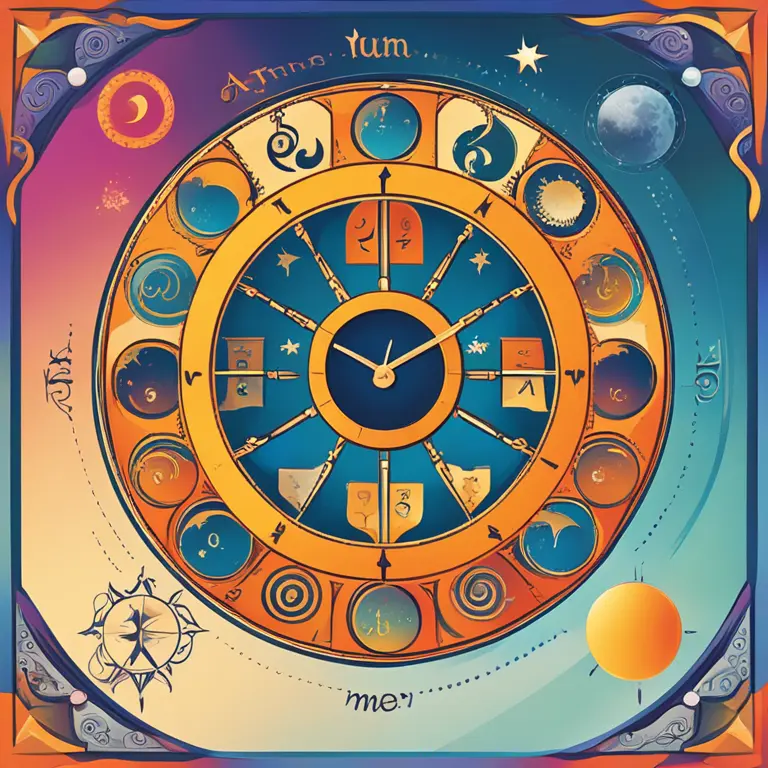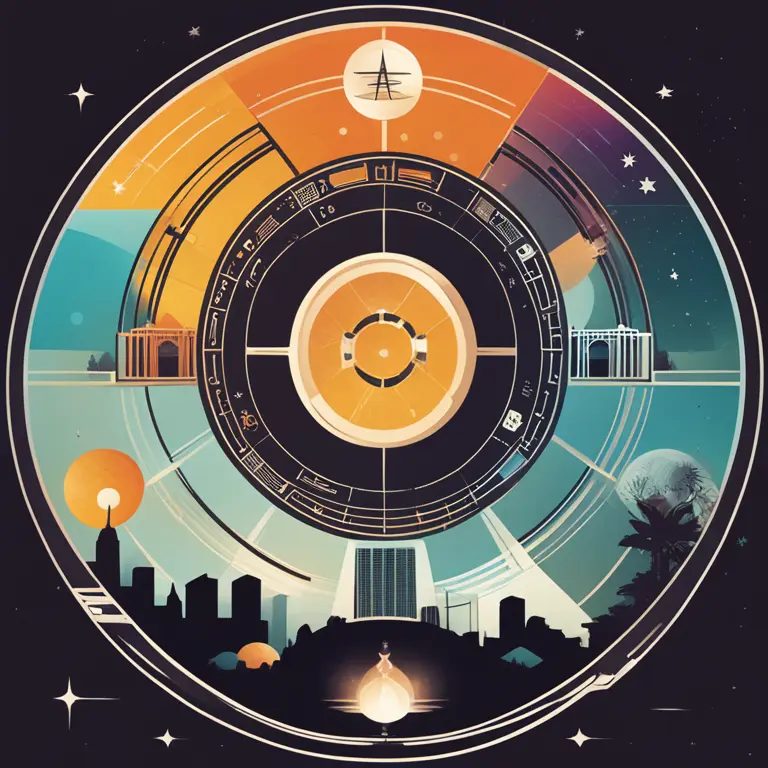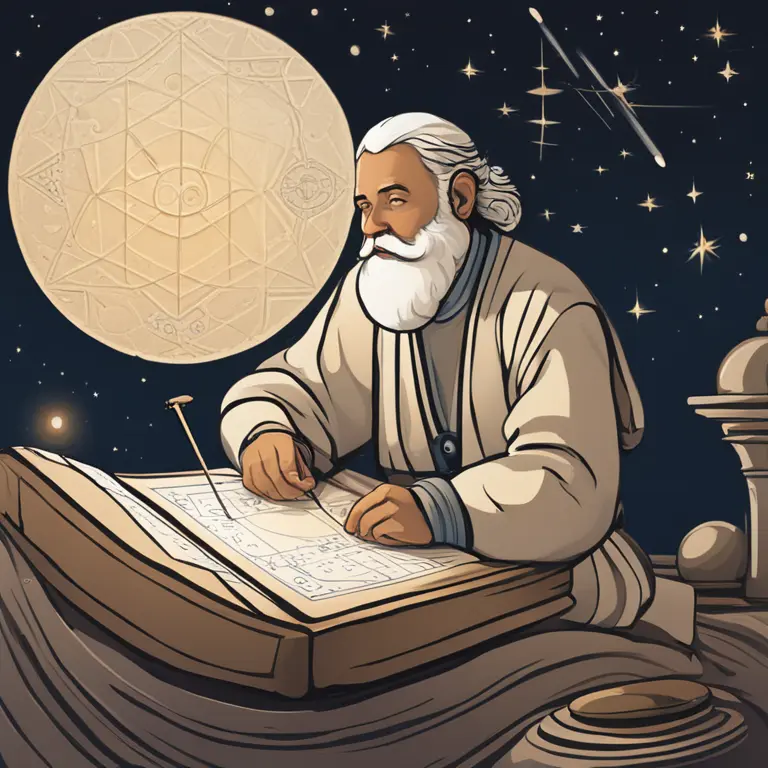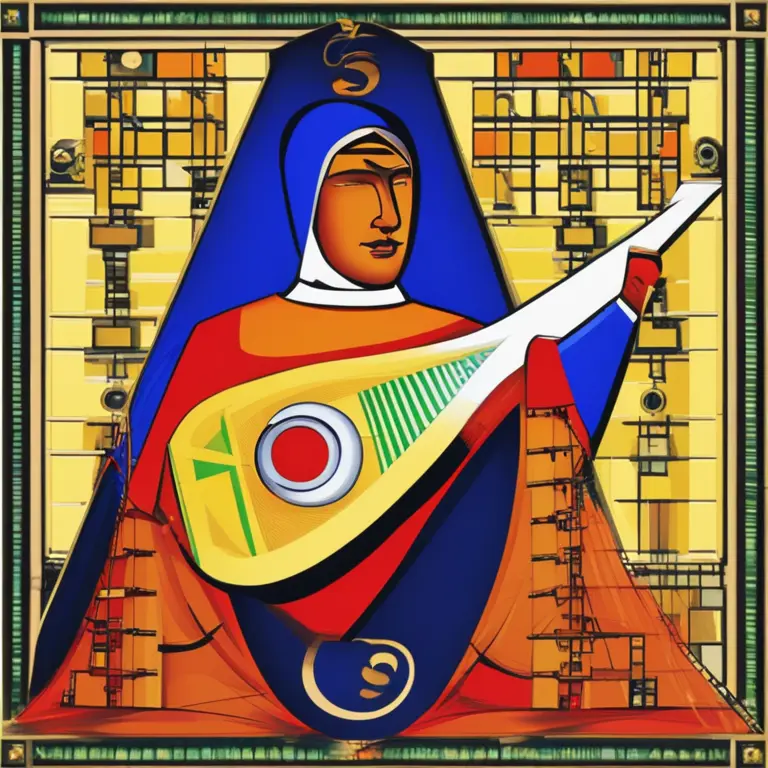
The Zodiacs Origins: Stars to Signs
Delve into the ancient origins of the zodiac signs and discover how they have influenced human destiny from star patterns to astrological symbolism.
article by Priya Deshmukh
Ancient Beginnings
The zodiac's roots are as old as civilization itself, with the earliest astrological records dating back to ancient Babylon, around the 2nd millennium BCE. These ancient astronomers observed the movements of the planets and the patterns of the stars, particularly noticing a belt in the sky where the sun, moon, and planets traversed regularly. They divided this celestial belt into twelve equal sections, each one corresponding to a specific time of the year, laying the foundation for the zodiac signs as we know them today. This system was later adopted and refined by the Greeks and Romans, forming the basis of Western astrology.

From Constellations to Characters
Each zodiac sign corresponds to a constellation with unique myths and imagery often deriving from Greek and Roman mythology. These constellations were anthropomorphized and granted characteristics which, in turn, translated to human traits and behaviors. Aries the Ram, for example, is associated with boldness and initiative, traits attributed to the ram's assertive behavior. This symbolic language enabled astrologers to predict and interpret personal destinies based on the positions of celestial bodies within these celestial segments.

Astrology in the Modern Age
Astrology has seen a renaissance in the modern era, blending ancient lore with contemporary psychological insights. For forecasts and horoscopes from 2024 and beyond, astrologers continue to rely on the movements of the planets through the zodiac signs to guide predictions. While the scientific community generally discounts astrology as a pseudoscience, the practice retains a vibrant following, with many looking to their horoscope for self-reflection, inspiration, and understanding personal compatibility.

The Zodiac as a Cycle
The zodiac is often visualized as a wheel, symbolizing the cyclical nature of time and human experience. As the Earth orbits the sun, each zodiac sign influences a specific month or period. Astrologers craft yearly forecasts based on planetary alignments, ensuring that horoscopes for 2024 and beyond remain relevant to enthusiasts. This zodiac cycle is embedded in various cultures, offering a means to explore personality, life events, and even predict future trends in personal growth and relationships.

Zodiac Signs and Personal Identity
In the realm of astrology, the zodiac sign under which one is born is thought to have a profound impact on one's identity and disposition. These signs serve as celestial guides, offering insights into strengths, weaknesses, and paths to personal fulfillment. As we venture into 2024, individuals will continue to seek out their zodiac readings for guidance on love, career, and personal development, often finding solace in the consistency of traits ascribed to their signs.
The Future of Zodiac Interpretation
The interpretations of zodiac signs are constantly evolving. As we blend ancient knowledge with the fast pace of modern life, we may see the emergence of newer astrological paradigms that respect traditional roots while embracing contemporary contexts. The continuous exploration into the correlations between celestial movements and terrestrial events ensures that astrology will remain a topic of fascination and debate well into the future.
Published: 2/2/2024
Modified: 2/2/2024
More predictions
Come back here soon to learn more about yourself and your future


Choosing the Best Astrology House System
Discover the strengths of different Astrology House Systems to determine which aligns best with your astrological practice.


The Best Astrology House System for Modern Stargazers
Choosing the best astrology house system can be a complex decision. This article discusses the merits of different systems used in contemporary practice.


The Influence of Astrological Houses on Your Birth Chart
Discover how the astrological houses in a birth chart shape your personality, life path, and destiny, playing a key role in your astrological profile.